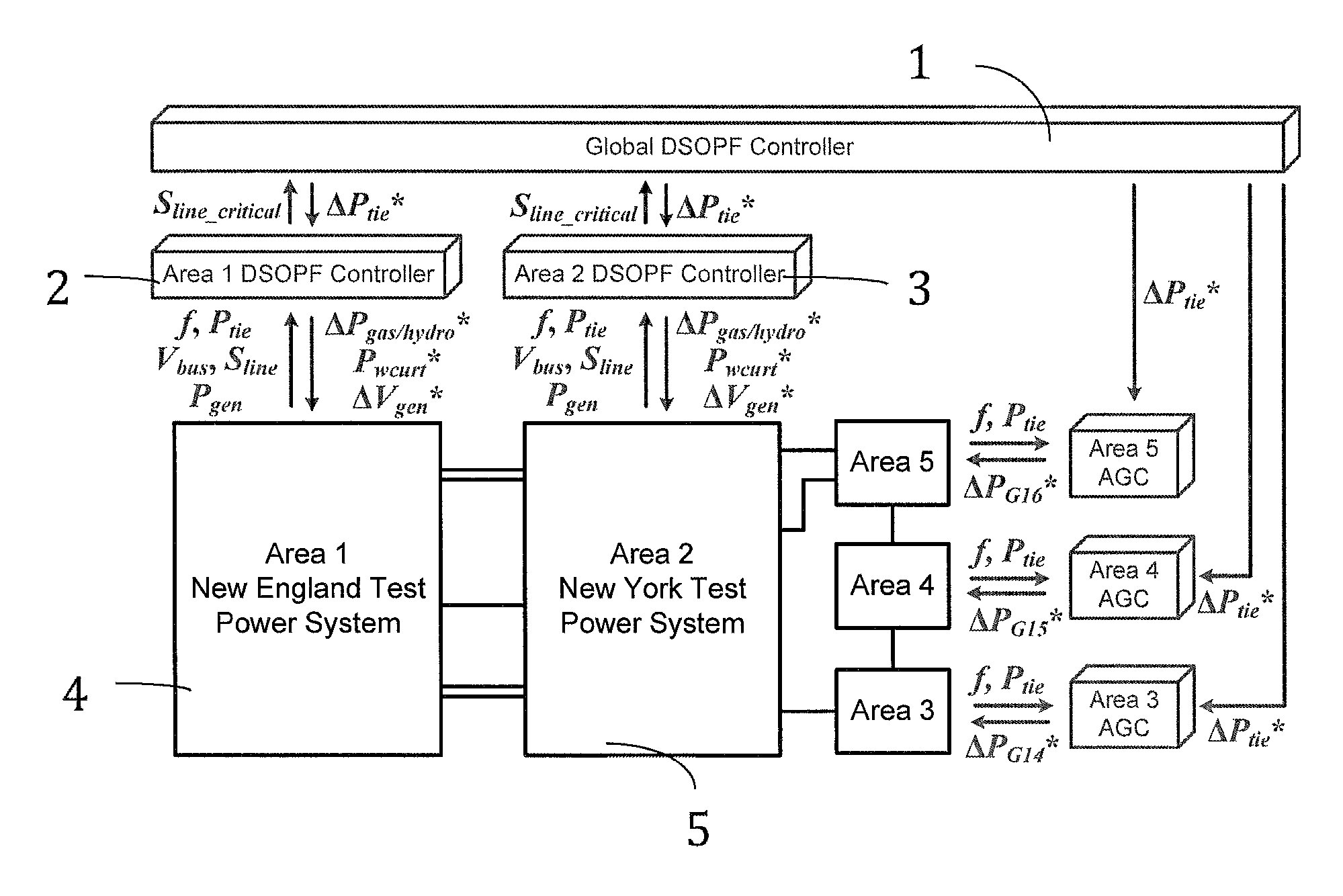Georgia Tech inventors have developed a dynamic stochastic optimal power flow (DSOPF) control system that provides multi objective optimal control capability to complex electrical power systems. The DSOPF control system uses nonlinear control techniques, including adaptive critic designs and model predictive control methods to achieve optimal control capability. It also provides a coordinated secondary alternating current (AC) power flow control solution to electrical power systems with a high penetration of intermittent renewable electrical energy generation. The invention eliminates the need for using an analytical model of a power system while enabling different performance indices and constraints of a power system to be formulated into the control objective. It also provides for the ability to replace traditional linear secondary control of existing power system controllers with a nonlinear optimal control for system-wide AC power flow.
- Enables multi-objective optimal control capability to complex electrical power systems
- Uses nonlinear optimal control techniques, such as adaptive critic designs and the model predictive control method
- Allows seamless integration of intermittent renewable generation resources
- Power utilities and grids which are facing increased penetration from intermittent renewable energy sources such as wind and solar
- New power control systems
Increased penetration of intermittent renewable energy sources, such as wind power, cause uncertainty and variability to mainstream power grid infrastructure. The existing linear secondary control schemes for frequency and voltage are based on the assumption that only small variations and uncertainties exist in power systems and for short periods of time. With high penetration of intermittent renewable energy, significant power flow redistribution occurs quickly. Consequently, a more sophisticated coordinating control method is needed to ensure optimal real-time system capability.

